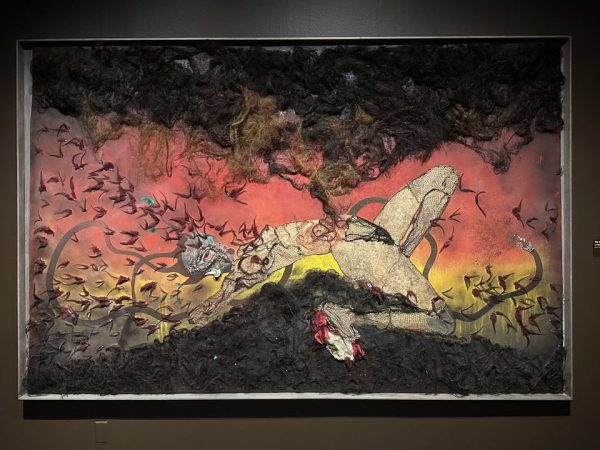Tulane must prioritize academic freedom
April 21, 2015
The following is an opinion piece, and does not reflect the views of the Tulane Hullabaloo
This past year has seen a number of advancements in guaranteeing academic freedom at American universities. Just a few months ago, the prestigious University of Chicago issued a free speech statement declaring that all members of its academic community have the right to freely exchange diverse opinions without punishment. Shortly thereafter, Princeton University officially adopted the University of Chicago’s declaration. Tulane University should follow suit and re-affirm its commitment to freedom of thought and academic inquiry.
Academic freedom is an issue more important to Tulane now than ever. Last year, Roosevelt University fired a professor for joking that he was against illegal immigration. Currently, Marquette University is trying to fire a tenured professor for holding conservative political views.
Tulane must not fall into such footsteps, especially given that Tulane is in the process of establishing a Middle Eastern Studies program, a field of study which is frequently seen as the most divisive and controversial in all of academia.
The reasons for why academic freedom is crucial are obvious. The basic fact of the matter is that individuals are entitled to have their opinions and defend their beliefs. It is that simple.
A professor should be able to express a controversial opinion and a student should have the right to think differently. This is the basis of academia and a fundamental American value.
On a less philosophical and more practical level, academic freedom is vital because we should not strive for classrooms where diversity of thought is shunned. At Columbia University — a place Harvard University Law Professor Alan Dershowitz has famously criticized for having the most radical, closed-minded scholars in the United States — students are routinely silenced or kicked out of class for their opinions. Dershowitz has documented these abuses along with the Committee for Accuracy for Middle East Reporting in America as a growing trend in controversial fields like Middle Eastern Studies.
Thankfully, no phenomenon of that scale is close to existing at Tulane. Problems still occur, however.
The Foundation for Individual Rights in Education gives Tulane a mix of “yellow” and “red” traffic light ratings for academic freedom. I, myself, was recently kicked out of a class for questioning the facts and logic behind my professor’s argument related to gender and politics in the Middle East. Though Tulane administrative officials reviewed the situation and are letting me finish the class as an independent study with a different professor, the situation should have never occurred. Similar incidents should never happen to other Tulanians.
What these issues boil down to are about the kind of atmosphere students want for learning. If you believe that a Cold War-style system of authoritarian lectures is the best way to process new information, perhaps a model similar to that of Columbia University’s will suit you well. Nevertheless, I believe that a marketplace of ideas is the backbone of academic discourse, and thus think that Tulane should model renowned institutions like Harvard University, Princeton University and Stanford University, places where academic freedom lives strong and well.
Kevin Young is a sophomore in the Newcomb-Tulane College. He can be reached at [email protected]





















Leave a Comment